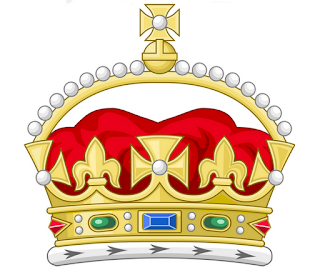I had a lovely telephone chat with a friend yesterday. We've only met once, and briefly at that. But we've corresponded occasionally over the years on various topics around life in general and life with Jesus in particular.
One thing that we talked about today was the topic of envy. And as we talked I tried to work out what would be the opposite of envy. I decided it must be rejoicing with one another.
If I envy you for your car, your wife, your wealth or good health, your education or some other blessing in your life, I am saying that I would prefer to have that thing myself, I would like to be in your place.
But if I rejoice with you over your car, wife, wealth, good health, education, or other blessing, I'm expressing gladness that you have that thing.
The Bible has a good deal to say about envy. Old and New Testaments agree that envy is a very bad thing. Here are a few examples.
- 'A heart at peace gives life to the body, but envy rots the bones.' (Proverbs 13:40)
- For it is from within, out of a person’s heart, that evil thoughts come – sexual immorality, theft, murder, adultery, greed, malice, deceit, lewdness, envy, slander, arrogance and folly. All these evils come from inside and defile a person. (Mark 7:21-23)
- they do what ought not to be done. They have become filled with every kind of wickedness, evil, greed and depravity. They are full of envy, murder, strife, deceit and malice. (Romans 1:28-29)
The word 'envy' appears twenty times in the UK version of the NIV.
The value of joy - Let's think about rejoicing instead. Let's practice rejoicing with our brother or sister in the good things they have received. Even if I have little and you have much, why would I not rejoice with you, why would I be jealous instead?
Envy is a shrivelled, mean-hearted emotion, crabby and resentful. It drives people apart. But rejoicing with one another builds bonds of peace and closeness. Envy causes a souring of relationships and blocks communication. But rejoicing with one another causes relationships to flourish like well-watered gardens and opens new depths of rich communication. Rejoicing is good for the soul, good for the mind, good for our sense of well-being.
Rejoicing builds up where envy tears down. Rejoicing cements together where envy tears apart. So it's easy to see that rejoicing makes it easier for Jesus to build the church whereas envy makes it much harder. We are a temple built of living stones held together by bonds of peace; rejoicing and love are the two major bonding elements.
May I urge you, if there is any bitterness or envy or jealousy in your heart, pray for it to be replaced with joy. And wherever you detect bitterness or envy or jealousy in your brother or sister, pray for them that joy might grow in their hearts instead. And where possible, pour love and good things into their lives as these may help the process along.
Light is a good thing, darkness is disabling, but light banishes darkness. In the same way joy is a good thing, envy is disabling, but joy banishes envy. Our hearts should seek joy just as our eyes seek light. The heart that seeks joy will find it - first in Christ, then in his Spirit, then in all the good things of life, and finally even in facing hardships and difficulties and pain.
In the world of music - You might like to listen to Beethoven's famous 'Ode to Joy' theme from his ninth symphony.
Notice how quietly it begins as a simple melody, but then spreads eventually through the entire orchestra and grows in excitement eventually bringing in all the instruments and voices.
It's such a great illustration, joy may begin quietly but it's lively and thoroughly infectious.
The final word - Let's give Paul the final word on rejoicing.
Rejoice in the Lord always. I will say it again: rejoice! Let your gentleness be evident to all. The Lord is near. Do not be anxious about anything, but in every situation, by prayer and petition, with thanksgiving, present your requests to God. And the peace of God, which transcends all understanding, will guard your hearts and your minds in Christ Jesus.
Finally, brothers and sisters, whatever is true, whatever is noble, whatever is right, whatever is pure, whatever is lovely, whatever is admirable – if anything is excellent or praiseworthy – think about such things. Whatever you have learned or received or heard from me, or seen in me – put it into practice. And the God of peace will be with you.







